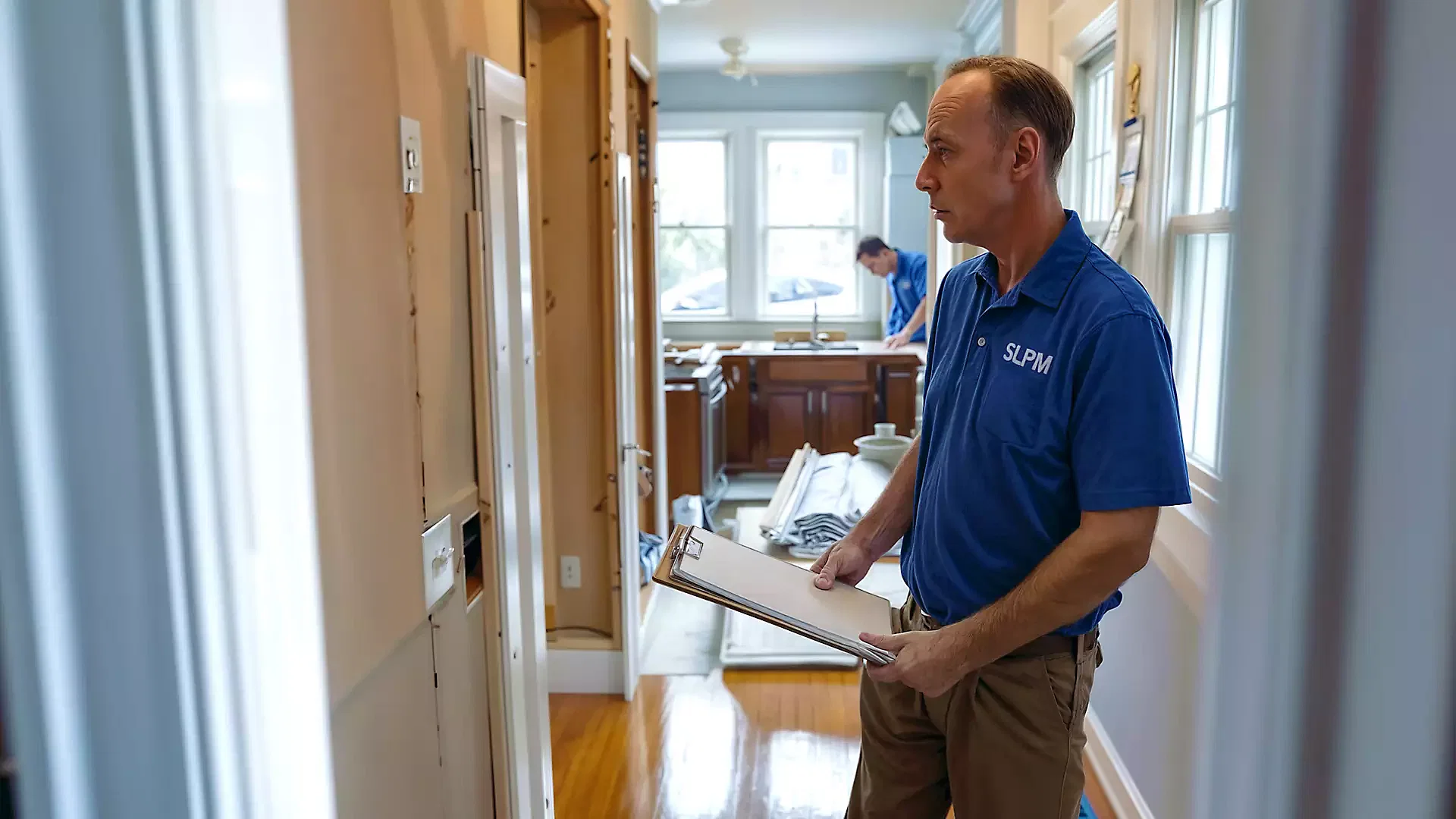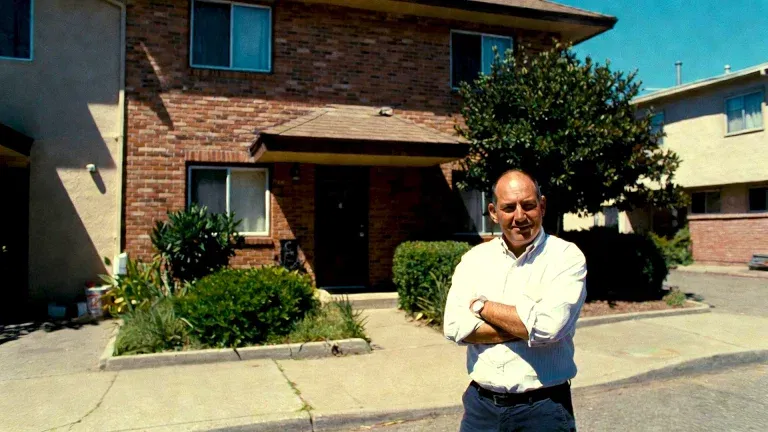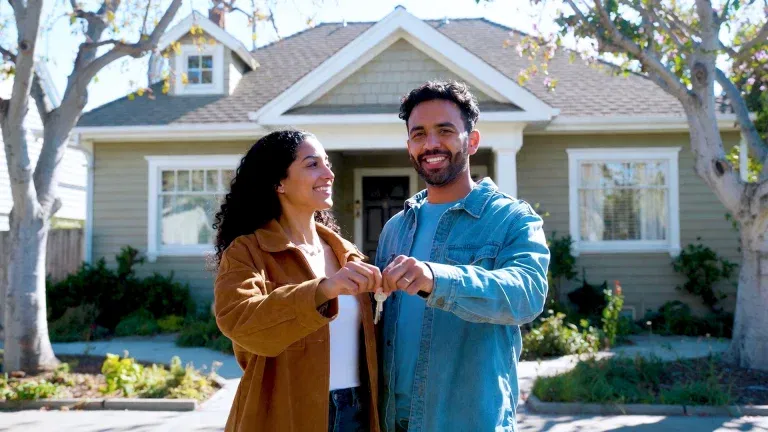As a property owner in SF East Bay, such as Oakland, Berkeley, Hayward, and Fremont, it’s crucial to clearly understand your rights and responsibilities when entering your tenant-occupied property for inspections. At SLPM Property Management, we use our extensive experience and expertise to balance respecting your tenants’ privacy and ensuring your property is properly maintained. Here are some tips to navigate the critical aspects of California law that dictate when and how landlords or property management companies can enter a rental property.

Reasons for Landlord Entry
California Civil Code Section 1954 outlines the circumstances under which landlords or property management companies can enter a rental property. These reasons include:
- In case of an emergency: If there is an urgent situation that requires immediate attention, such as a fire, gas leak, or burst pipe, landlords or property managers may enter the property without prior notice to address the issue and prevent further damage.
- To make necessary or agreed-upon repairs, decorations, alterations, or improvements: Landlords are responsible for maintaining the habitability of the rental property. The purpose of entry is to address repairs and make necessary improvements to ensure the property remains in a livable condition. However, proper notice must be given to the tenant before entering the property unless it’s an emergency.
- To supply necessary or agreed services: If the landlord or property management company is responsible for providing certain services, such as landscaping or pest control, they may enter the property to fulfill these obligations, given that proper notice is provided.
- To exhibit the property to prospective or actual purchasers, mortgagees, tenants, workers, or contractors: When the property is being sold, refinanced, or leased to new tenants, the landlord or property manager may need to show the property to interested parties. This also applies when workers or contractors must assess the property for potential repairs or improvements.
- To conduct a pre-move-out inspection: Before a tenant vacates the property, the landlord or property manager may inspect to assess the property’s condition and determine if any repairs or cleaning are necessary. This inspection helps ensure the property is returned in a satisfactory state. It can also serve as a basis for determining the tenant’s security deposit refund.
- When the tenant has abandoned or surrendered the premises: If a tenant has abandoned or voluntarily surrendered the premises, the landlord or property manager may enter to secure the property and assess its condition.
- Under a court order: Sometimes, a court may grant the landlord or property manager permission to enter the property, even if the tenant objects.
Proper Notice
To maintain a positive landlord-tenant relationship and comply with California law, landlords or property management companies must provide tenants with reasonable notice before entering the property in most situations. The notice should be provided in writing and include the following information:
- The date and approximate time of the intended entry
- The specific purpose for the entry
- The notice should be personally delivered to the tenant, left with a person of suitable age at the premises, or left at, near, or under the usual entry door where the tenant is likely to find it.
The amount of advance notice required varies depending on the reason for the entry:
- 24 hours’ notice is required for showings to prospective or actual purchasers
- 48 hours’ notice is necessary for a pre-move-out inspection
- For all other allowable reasons, 24 hours’ notice is required
Entries should generally occur during regular business hours, typically between 8 a.m. and 5 p.m., Monday through Friday. However, suppose the tenant consents to an entry outside of these hours. In that case, the landlord or property manager may accommodate the request.
Respecting Tenants’ Privacy
As a landlord or property management company operating in the East Bay cities, it’s essential to prioritize your tenants’ right to privacy and peaceful enjoyment of their rental home. Entries should be limited to the specific purpose stated in the notice. They should not be used to harass, intimidate, or inconvenience tenants. Suppose a tenant requests to be present during the entry. In that case, the landlord or property manager should make a reasonable effort to accommodate the request, as it can foster trust and transparency in the landlord-tenant relationship.
In our experience at SLPM Property Management, we’ve found that open communication and mutual respect are essential to successful property management in Eastbay. By clearly explaining the reasons for entry, providing proper notice, and being mindful of tenants’ privacy, landlords can maintain a positive relationship with their tenants while ensuring their property is well-maintained.
Exceptions and Special Circumstances
While the guidelines outlined above cover most situations, there are some exceptions and particular circumstances to keep in mind:
- If a tenant is present and consents to an entry at the time of the request, the landlord or property manager may enter without providing written notice.
- In an emergency, such as a fire or a severe water leak, the landlord or property manager may enter the property without notice to address the issue promptly and prevent further damage.
- If the tenant has abandoned or surrendered the premises, the landlord or property manager may enter without notice to secure the property and assess its condition.
Landlords and property managers must familiarize themselves with these exceptions and consult with a legal professional or experienced property management company if they encounter unique situations not covered by the general guidelines.

Our Final Thoughts
Understanding a landlord’s right to enter a rental property is essential for property owners in California’s Eastbay cities. By familiarizing yourself with the reasons for entry, providing proper notice, and respecting your tenants’ privacy, you can maintain a positive landlord-tenant relationship while ensuring your property is well-maintained. At SLPM Property Management, our knowledgeable team stays up-to-date with the latest laws and regulations, ensuring your property is managed effectively while fostering positive interactions with your tenants.
Managing rental properties in Oakland and the SF Eastbay can be complex and time-consuming. Let SLPM Property Management handle the intricacies so you can focus on growing your investment portfolio. Our experienced team is well-versed in local laws and regulations, and we prioritize building solid relationships with both property owners and tenants. Contact us today for a FREE Property Management Quote and discover how our expertise can help you maximize your investment in the San Francisco East Bay rental market.




